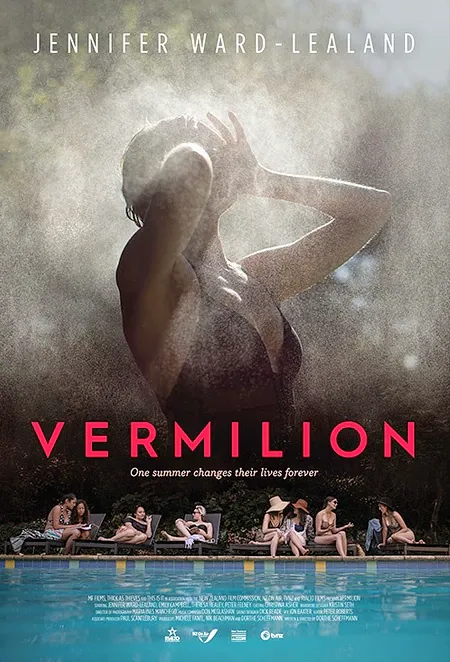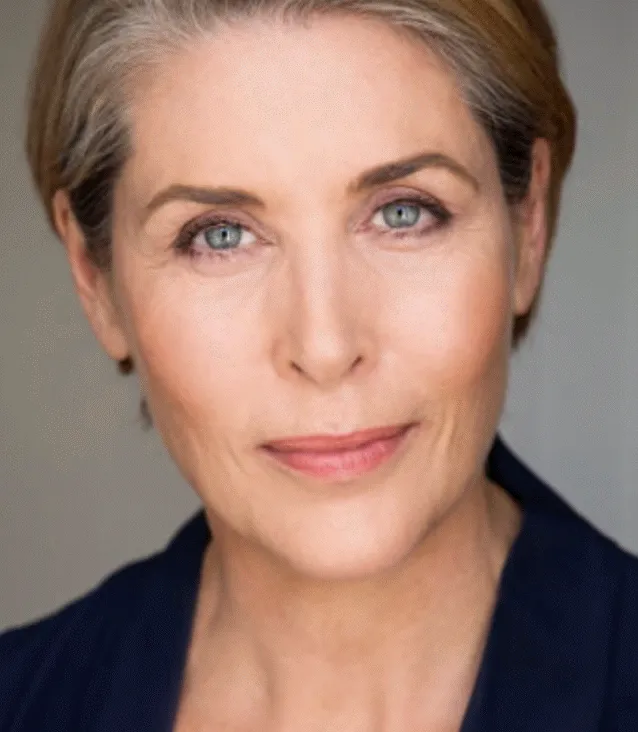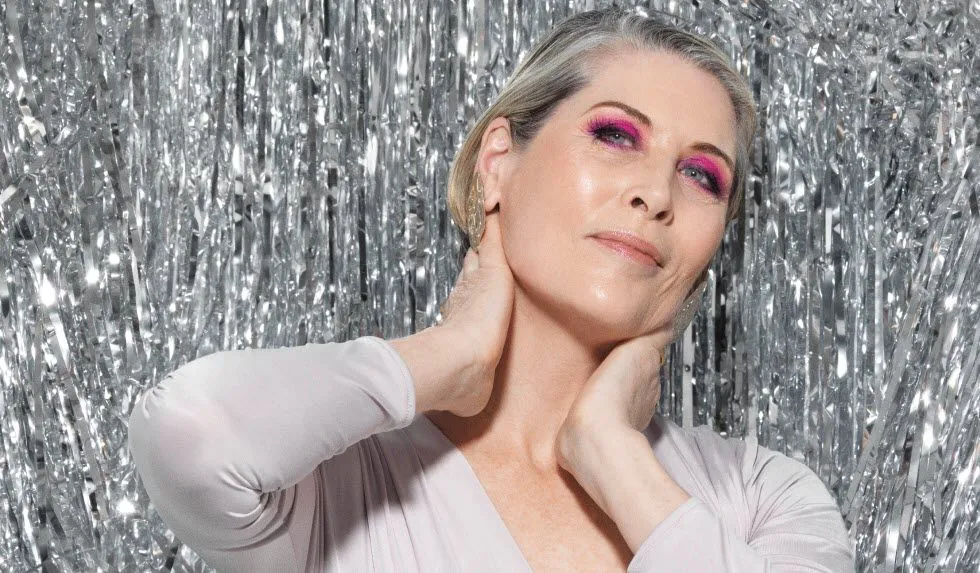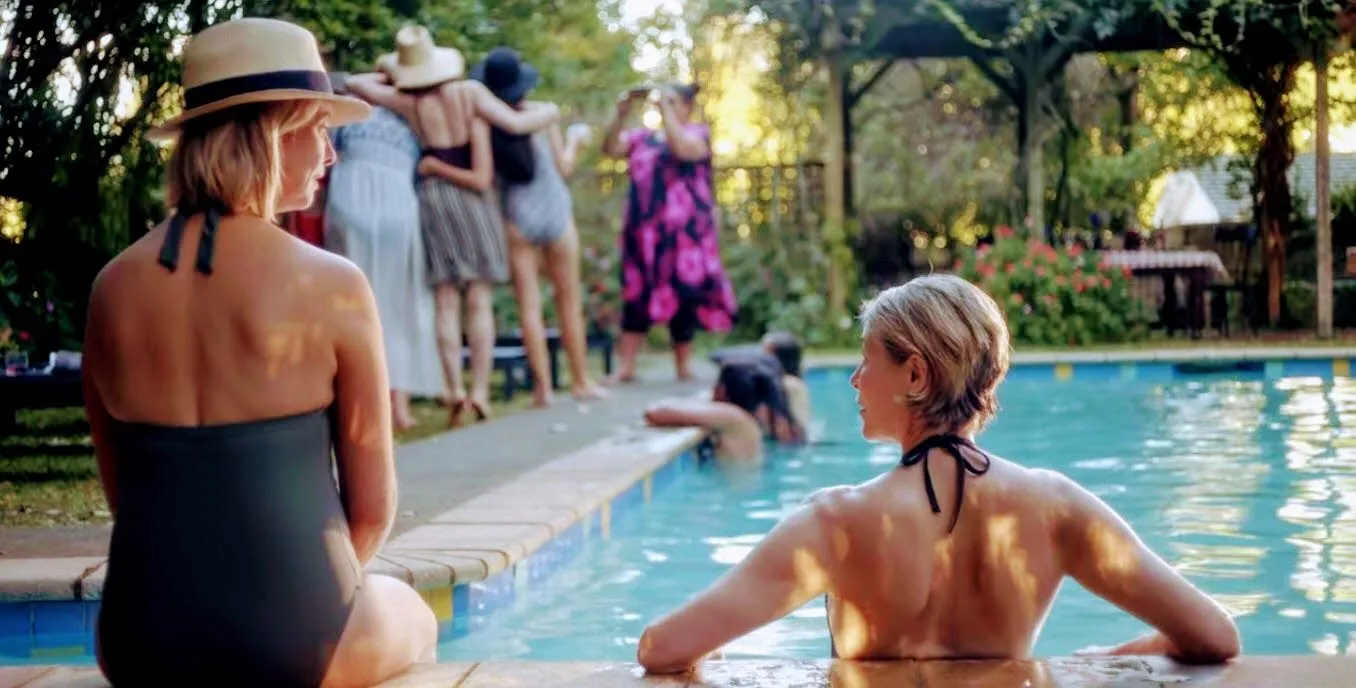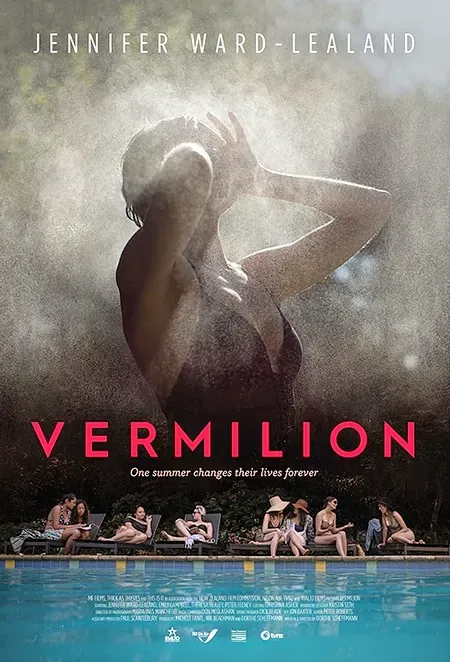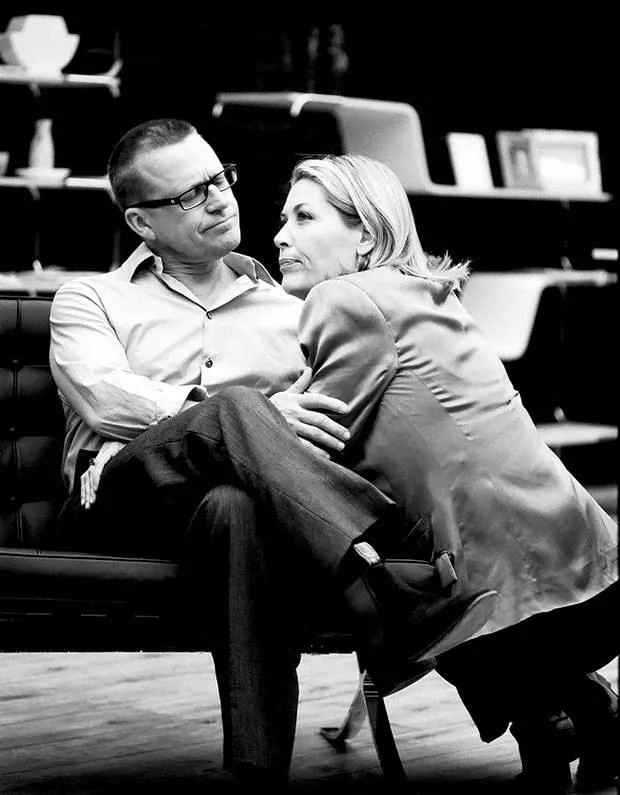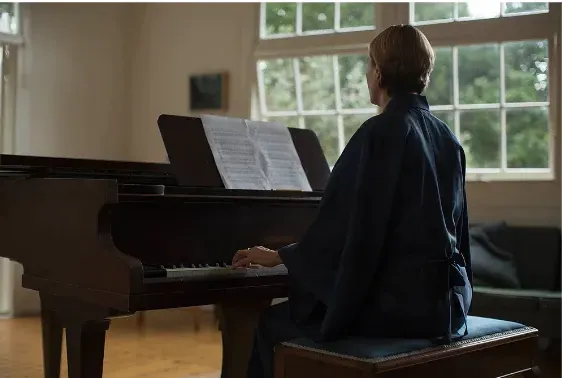The many colours of Jennifer Ward-Lealand
Written by
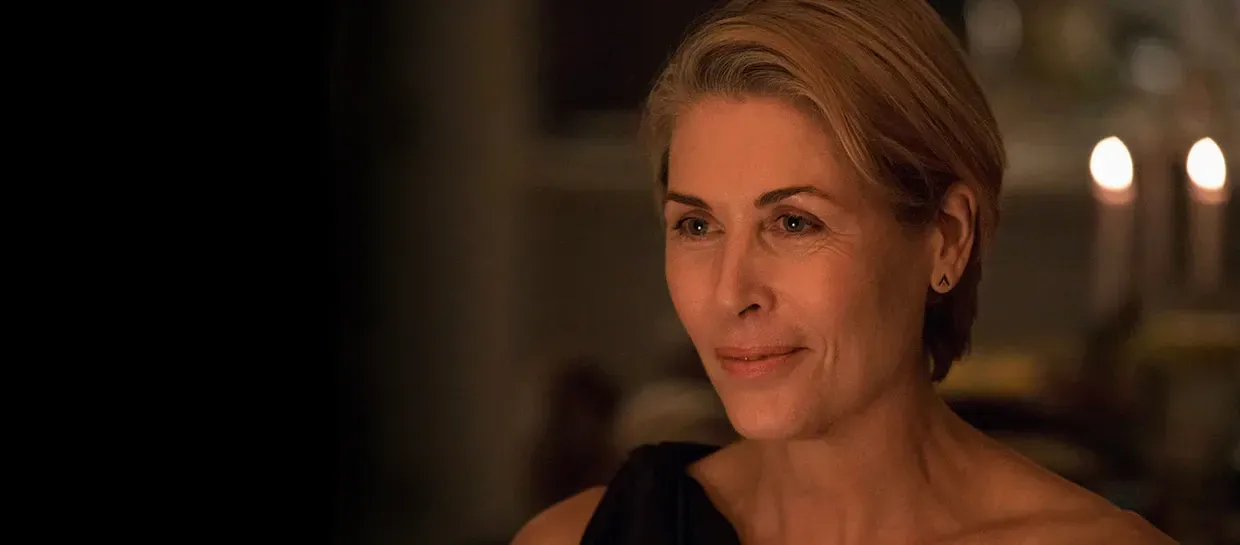
She has been called Kiwi royalty - an icon, a legend, a matriarch, a Queen Bee and a seasoned veteran.
Jennifer Ward-Lealand was also last year gifted the name Te Atamira, or “The Stage” which she proudly displays on her website and email signature. For the past decade it has definitely been the stage which has dominated her professional life, along with an impressive schedule of musical theatre, directing, teaching, speaking and advocacy.
Now in a few weeks, on her birthday November 8, she will also celebrate the opening of her first full-length movie in 16 years, Vermilion.
Her last big screen feature was the Larry Parr-directed Fracture for which she won a Best Supporting Actress nomination even though 90% of the movie she was flat on her back in a neck brace.
In Vermilion she has the lead, at the heart of a story about female friendship and making the most of opportunity. It’s the latter that has helped Ward-Lealand develop her career - the ability to adapt and evolve, or die.
“It’s funny, all these words I’ve heard in the last five years like veteran or royalty. I’ve been doing this professionally for 36 years now, and I love it. I love having a life of change.”
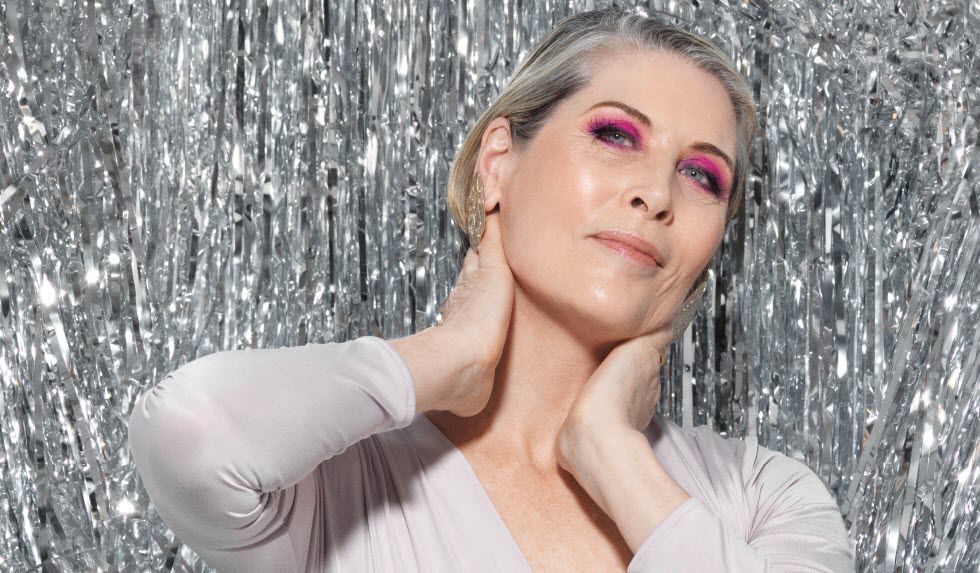
“Here Lies Love” opens at Auckland’s Q Theatre, November 22
Case in point, she’s about to go into a David Byrne musical in a couple of weeks, from November 22 at Q Theatre.
“I keep waking up with the songs inside my head, and that’s going to be a whole lovely show to dive into. I’ve just finished directing a show called Conversations with Dead Relatives, with Flaxworks, and that just played down in the Nelson festival. I couldn't really ask for a better life. “
There is one piece of advice that she has found herself giving more often than any other to those wanting to make a life as an actor - “I’m championing versatility,” she says.
“Get all of your skills going. To make a career you might have to do acting on the stage; on the screen, voice overs, maybe some hosting work, maybe some radio work, documentary narration, or animation voice work. If you can sing, develop your singing voice.”
So, develop as many strings to your bow as possible – but don’t let those strings get too taut.
“I’m very aware of mental wellbeing in our industry, and it not being that great. It’s very easy for an actor to feel that if they aren’t working they’re not an actor anymore. You have to try and not see yourself solely through the eyes of your work.”
Throughout her own career Ward-Lealand has worked hard to keep that balance in life, raising two sons with husband Michael Hurst. They’re sometimes described as New Zealand’s first couple, or our acting royalty.
Any similarity with royals may be about longevity, or staying power. “I do just keep doing it. I involve myself in the arts a lot, and I think that people know I care very much about actors’ wellbeing.”
She believes in helping others who are coming up the ranks. So much so she was honoured as an Officer of the New Zealand Order of Merit in 2007, for services to theatre and the community.
In 11 years of advocacy as President of Equity New Zealand she says all she has wanted is to keep working to make a positive change. “If you’ve been in this business for a long time you owe it to other generations to give back.”
“I know what the life is like, I know how actors feel, as do all the actors who are on the Equity New Zealand Board. I take that idea of service quite seriously, it's why I talk to so many community groups about the life of an actor in New Zealand.”
In her view it’s still something the public doesn’t really have a handle on.
“They sometimes think that because you work in a theatre doing two plays a year that somehow you are permanently employed. It’s my one woman mission to educate the public on the life of a New Zealand actor and the realities of it.”
“I’ll sometimes say to people that there is only one full-time job for actors in New Zealand, ‘do you know what that is?’ and someone might peep up a ‘Shortland Street?’ I’ll say yes, that’s right, for maybe only 15 or 20 people, and there will be more on short term contracts.”
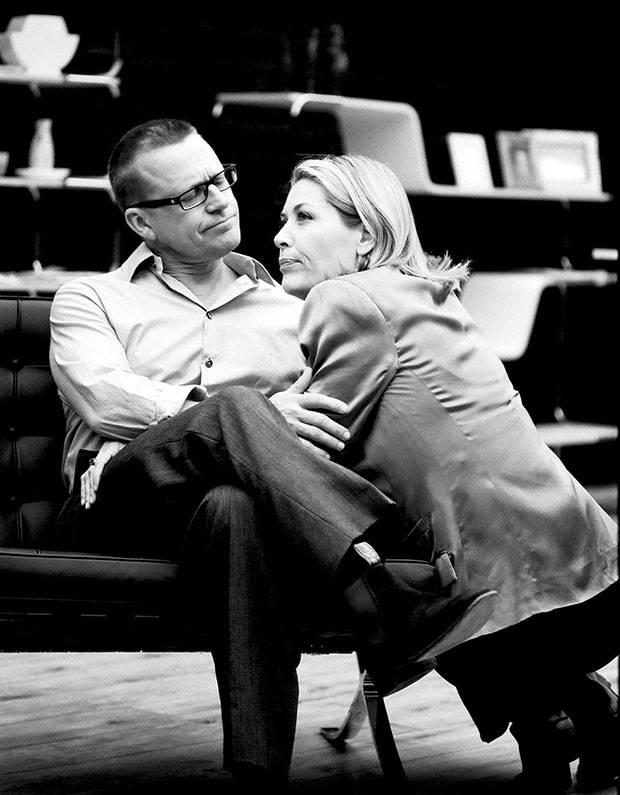
Jennifer with husband Michael Hurst. Photo by Andrew Malmo for Silo Theatre’s production of The Goat.
At any one time in New Zealand more than 8 out of 10 actors will be unemployed. But this is no sob story. She is optimistic for young actors coming into the profession and concedes the opportunities are probably greater now than in the 70’s when her own love of the craft began.
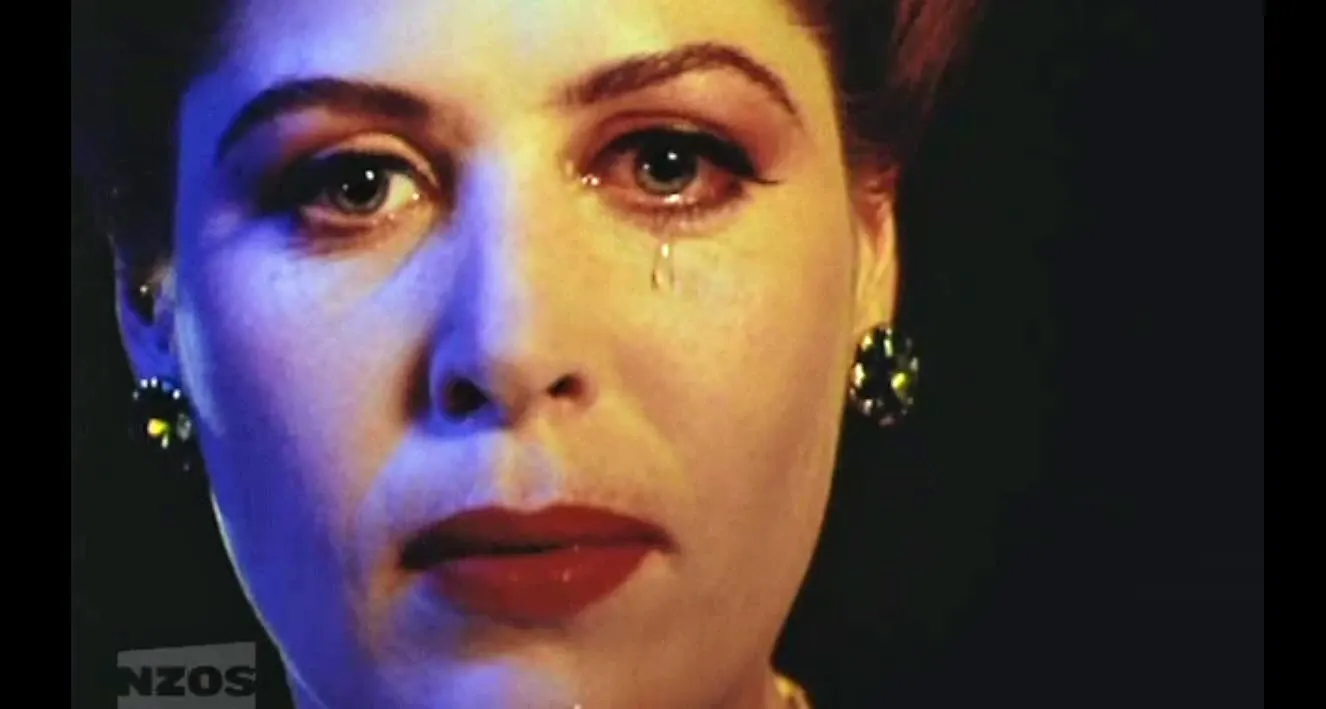
Desperate Remedies, 1992
As a seven-year-old she scored a brief appearance, with her father Conrad Lealand, in a Paul Maunder production of Oedipus at Unity Theatre. She said, years later, that the minute she walked into the rehearsal room she felt at home. Clearly a feeling that’s never left her.
“There are so many wonderful things about it, this life. There is more opportunity now, in that people are making more opportunity,” she says.
“Having the ability for instance to create your own work on the stage, or your own web series and get that out there, means that the ability to make your own stuff is there.”
On the basis that practice makes perfect, there is no denying it’s more of a challenge to get regular theatre work now with fewer companies available.
“You might come out now and get one play a year, or make your own play up. I’m almost the last generation who got to go straight from drama school into a company and work for years, doing say twelve plays a year, year after year, building the craft.
“It’s a pipe dream of mine and Michael’s to run a company, say nine months of the year, working with about 15 actors just doing shows.”
That could still happen of course - because on the stage and in the movies, as we know, dreams can and do come true.
A good example – Ward-Lealand never thought that in her 50s she’d get the kind of role director Dorthe Scheffmann approached her with in 2015.
About Vermilion
“It was quite a surprise, because I didn’t think I’d do a film again, but it was such a lovely role,” she says. “It was great to have a character who was over 50 in the lead. I can’t think of any film for a while where the leading cast are all in their 40’s or 50s and it’s helmed by a woman.”
In Vermilion she is Darcy – a composer who has synesthesia which means she sees colours when she hears music. When the colours begin to change to an intense red - Darcy realises something has changed; realises as well, that her relationships including with her daughter, have not been as good as they should be. “Like many women she’s been focused on her creativity, and there’s that tension between being a mother and being an artist.”
The themes will be relatable to many people – whether it’s creativity, work, or whatever they are passionate about, and their parenting. “It’s about relationships, and particularly between women. My relationships with my women friends are very strong, and very powerful. I don't think I would’ve got through some of my mothering small children without my friends.”
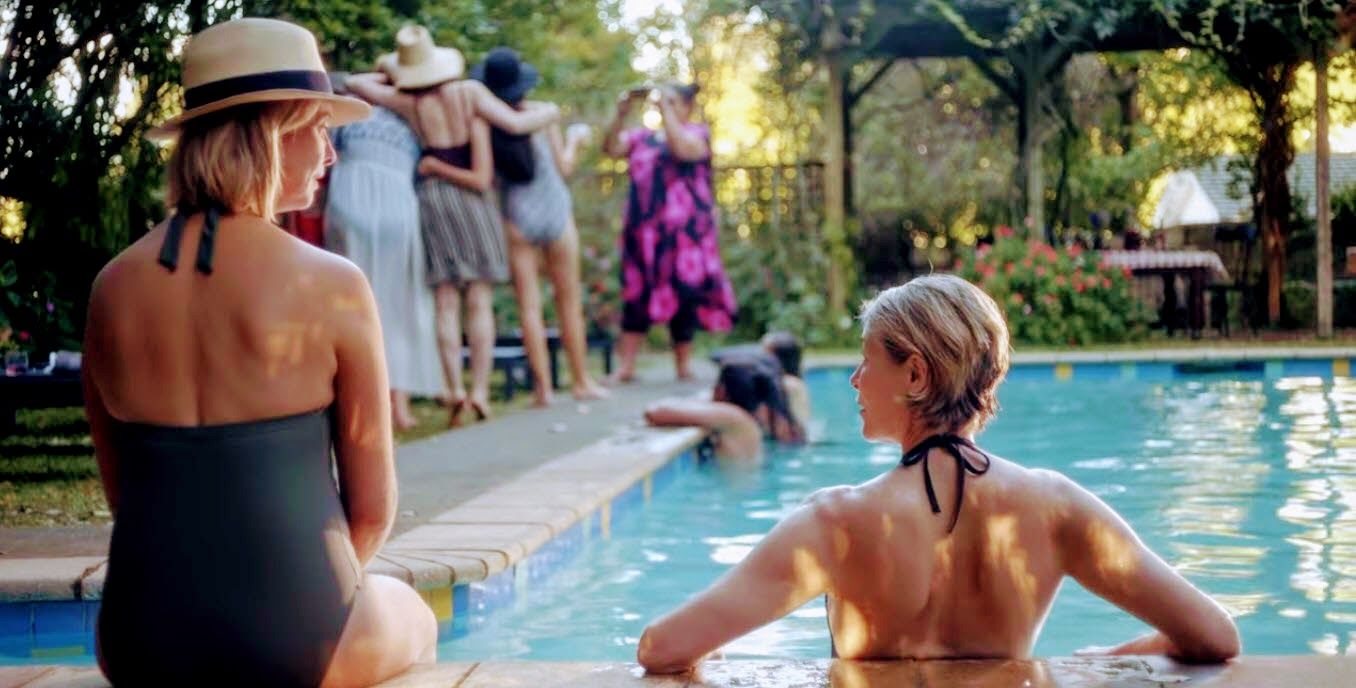
With Theresa Healey (Sarah) in Vermilion
“Darcy is different in that she was a solo mother, and also went away and did her tours. I didn’t do that, spend months away from my children, but there definitely were those times when I’d wake up in the morning and know I had a show that night. There’s that pull of ‘what do I have to give my audience’, and ‘what do I give my children’? There is a sacrifice along the way somewhere, and Darcy has not perhaps sacrificed as much as she feels she should have.”
Her hope is that people see themselves and their relationships in the film.
“I hope they see the nature of female friendship, and feel good about them, and feel how strong and important they are. I don’t think there are that many films that celebrate female friendship, especially between older women who've gone through it, and have older children now. Those friendships shift and change, but are still incredibly strong and potent.”
There are old and new friends in Vermilion including Theresa Healey as Sarah and a score composed by Front Lawn founder Don McGlashan. Working with first-time feature film director Dorthe Scheffmann, she says, was wonderful.
“I loved Dorthe’s style of direction. She’d often come in and say just that one subtle thing to me that would open something up. I loved that because I don’t want to think I know everything that would be a terrible thing to take into a project. You do have to trust that director, you want to know that they are seeing what they need to see. It’s her story, Dorthe wrote this and she knows the characters intimately, so I really trusted that she was getting what she wanted.”
The film was shot in 2017 mostly in a villa just down the road from Ward-Lealand’s Auckland home. “There were some scenes where we shot all night, and we had the weather gods shining on us. Every time we’d shoot it was between any weather bombs which happened to be going around.”
“When we did these night shoots, and I’m thinking of a scene between Theresa and I, and if you said it was twelve midnight, I would’ve believed you, and if it was four am or five am, I didn’t know. We were in a beautiful cocoon of shooting which felt incredibly delicate and safe at the same time. I feel kind of spoiled in filmmaking now.”
-
Learn more about the movie, and watch the trailer here
-
If you are planning to see Vermilion you can like or share on Facebook.
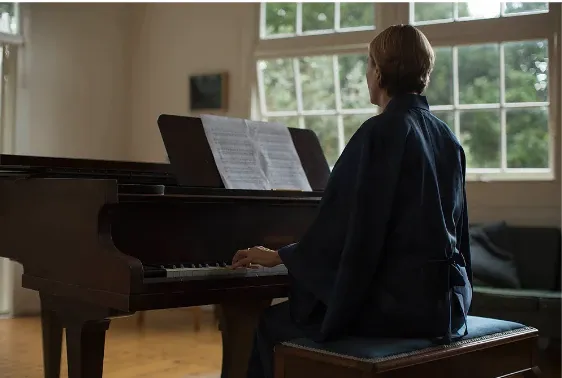
There were hours of practice at the piano. “Pretty well everything you see me playing, I was actually playing.”
About Jennifer Ward-Lealand
Jennifer Ward-Lealand was a founding board member of the Watershed Theatre and a co-founder of The Large Group and The Actors' Program. She is currently Patron of Q Theatre, with her husband Michael, and serves as a trust board member of Arts Regional Trust , Silo Theatre, and Actors Benevolent Fund. Her portrayal of Dorothea in the iconic feature film Desperate Remedies earned her the Best Actress award at the International Festival of Fantasy Film in 1993.
By Keri Malthus
